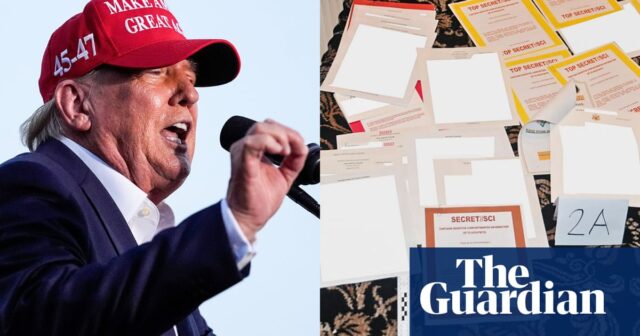A federal judge has temporarily blocked special counsel Jack Smith from issuing his final report into Donald Trump’s criminal cases until after an appeals court resolves the president-elect’s last-ditch legal action seeking to prevent it from becoming public.
The US district judge Aileen Cannon, who presided in Trump’s criminal case over his retention of classified documents before she dismissed it last year, issued an injunction that barred the justice department from releasing the final report or drafts of it.
“Attorney General Garland, the Department of Justice, Special Counsel Smith, all of their officers, agents, and employees, and all persons acting in active concert or participation with such individuals are temporarily enjoined,” Cannon wrote in her two-page order.
The final report into Trump’s criminal cases was supposed to be transmitted to the attorney general by Friday, but Cannon’s judicial intervention could mean that timeline is thrown into limbo given the complicated sequencing that could now arise.
On Monday, lawyers for Trump’s former co-defendants in the documents case asked Cannon for an injunction. On Tuesday morning, they submitted a similar motion to the US court of appeals for the 11th circuit, which currently has jurisdiction over the case as prosecutors challenge Cannon’s dismissal.
The injunction granted by Cannon will be in effect until three days after the 11th circuit issues its own ruling over whether to block the report’s release, according to her order, unless the 11th circuit decides otherwise.
But that leaves a narrow window of time for Smith to be able to release his two-volume report before Trump takes office and his incoming attorney general almost certainly shreds the prospect of the highly damning document coming out.
Under the regulations, special counsels are required at the end of their investigation to produce a final report explaining any charging decisions. Given special counsels are appointed to handle politically sensitive cases, their reports typically generate immense public interest.
Final reports are initially confidential when a special counsel sends them to the attorney general, but the attorney general can then choose how much should be made public – and Garland has previously pledged to release at least some of the contents of Smith’s report.
The abrupt intervention by Cannon comes after Trump’s lawyers mounted a series of extraordinary efforts on Monday to stop the release of Smith’s report, asking Garland to prevent its completion and asking Cannon to issue a court order.
The Trump lawyers reviewed a draft copy of the report in Washington over the weekend. The attempt to stave off the release of any of its contents appears to come from their vehement objection to the report concluding that Trump in effect orchestrated criminal conspiracies.
Trump’s lawyers objected to Smith even being allowed to complete a report and asked that Garland remove him from his post. If Garland disagrees and Smith produces a report, the decision on whether it should become public should be left to the incoming attorney general, the lawyers suggested.
The lawyers leaned heavily into their contention that Smith was improperly appointed because he was not confirmed by the Senate before he took the job – the basis on which Cannon dismissed the classified documents case against Trump.
They argued that because Smith decided to drop his appeal against that ruling after Trump won the election, Cannon’s ruling was binding. “Judge Cannon’s decision is a final judgement with issue-preclusive effect on these issues,” the lawyers wrote.






